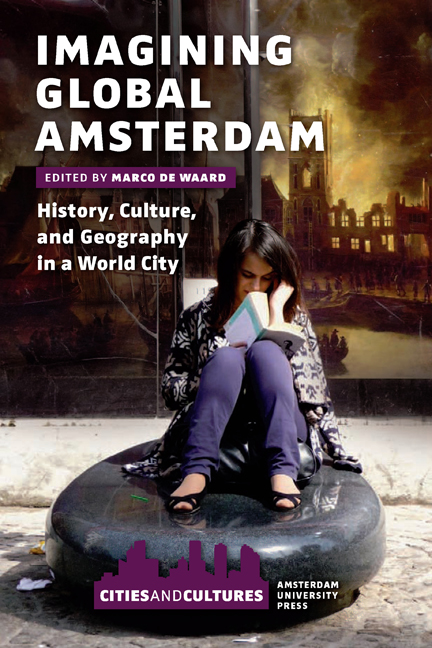10 - Amsterdam, City of Sirens: On Hafid Bouazza’s Short Story ‘Apolline’
Published online by Cambridge University Press: 19 January 2021
Summary
When in 1996 Hafid Bouazza published his debut collection of short stories De voeten van Abdullah (Abdullah's Feet), it caused quite a stir. Besides the obvious literary qualities of the collection, it was the author's background that so excited its readers. Hafid Bouazza, born in Morocco, the son of one of the many ‘guest labourers’ who came to the Netherlands in the 1970s, had arrived there at the age of seven, young enough to be regarded a second-generation migrant. It is worth remembering what the literary landscape was like in the mid-1990s. The first writers born outside of the Netherlands and its former colonial structures were breaking onto the stage: in 1994 Mustafa Stitou had established his reputation as a poet with Mijn vormen; on the prose front, Kader Abdolah had published his first collections of short stories in 1993 and 1995; Naima El Bezaz and Hans Sahar had written their first full novels in 1995; and Abdelkader Benali published his debut novel in the same year that saw the appearance of Abdullah's Feet.
It is true that the predominantly monocultural Dutch literary landscape had already encountered a number of ‘outsiders’ before the emergence of young migration writers in the 1990s. Authors from the one-time colonies of Surinam and the Dutch Antilles – such as Albert Helman, Frank Martinus Arion, Tip Marugg, and Astrid Roemer – had, by then, made a name for themselves in literary circles. However, the tremendous interest among the general reading public in secondgeneration migrant authors like Bouazza was an as yet unknown phenomenon, one that cannot be disconnected from the zeitgeist of the late 1980s and 1990s, when the multicultural society started to dominate political and social agendas. In this period, public debate and government measures were shifting from the 1980s policy of ‘integratie met behoud van eigen taal en cultuur’ – that is, promoting the integration of (non-Western) immigrants by encouraging them to preserve as much as possible their cultural identity and original language – to a policy of mandatory Dutch language courses and required civic integration training, institutionalized in the 1998 Integration of Newcomers Act (Wet Inburgering Nieuwkomers or WIN). In short, the nation's mood was turning from a celebratory multiculturalism, predicated on belief in the value of immigrants’ own culture and language, to an anxious insistence that ‘newcomers’ must acquire knowledge of the Dutch language and Dutch cultural practice as a precondition for their successful socio-economic integration.
- Type
- Chapter
- Information
- Imagining Global AmsterdamHistory, Culture, and Geography in a World City, pp. 187 - 198Publisher: Amsterdam University PressPrint publication year: 2012



